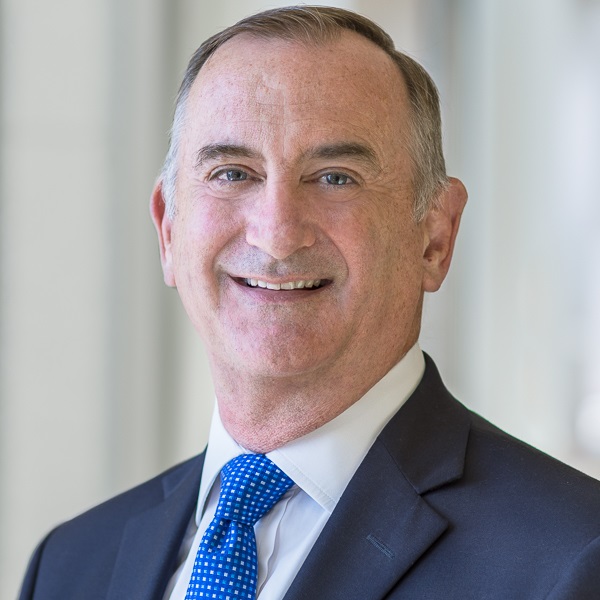Long-Term Investing
Capital IdeasTM
Investment insights from Capital Group
Central Banks
The US Federal Reserve (Fed) kept its benchmark interest rate unchanged this week, as it takes stock of how prior rate hikes are impacting the real economy. This ends a streak of 10 consecutive rate increases, but central bank officials were quick to note the tightening cycle is not necessarily over.
The Fed's new summary of economic projections (commonly referred to as the dot plot) indicates there could be two more hikes this year before the central bank is done. The latest report shows a majority of Fed officials expect the federal funds rate to peak between 5.5% and 5.75%. This is a notable change from the March dot plot, in which most Fed governors predicted the rate would top out at 5% to 5.25%, where it sits today.
Getting inflation down
"As you can see from the [dot plot], the committee is completely unified in the need to get inflation down to 2% and will do whatever it takes to get it down to 2% over time," said Fed Chair Jerome Powell, striking a hawkish tone. "That is our plan."
US headline inflation fell to 4% in May, down from its June 2022 peak of 9.1%, but the latest core reading (stripping out volatile items like food and energy) remains at 5.3%. That is still high relative to the Fed's 2.0% target, and Powell pushed back against the notion that rates might drop later this year.
"It will be appropriate to cut rates at such time as inflation is coming down really significantly," Powell said. "And we're talking about a couple years out. … I think, as anyone can see, not a single person on the committee wrote down a rate cut this year, nor do I think it is at all likely to be appropriate."
Here are the latest views from economist Darrell Spence and fixed income portfolio managers Pramod Atluri and John Queen.
- If the economic backdrop remains resilient, the Fed may further increase its policy rate given persistent inflation.
- Now that the debt ceiling uncertainty is in the rear-view mirror, and stress in the banking sector appears to have diminished for the time being, the Fed has more flexibility. The risk is that monetary policy does not ease at the speed markets are pricing in.
- A recession remains possible, but the timing is uncertain, and it could occur later than originally anticipated.
- The US labour market — likely the key to reducing inflation — has not meaningfully weakened. The unemployment rate recently hit a level not seen in over 50 years (3.4%). While it has ticked up slightly, job openings suggest the demand for labour remains strong.
- However, there is a wide range of potential economic outcomes, as recession indicators are flashing red.
- The window for rate cuts could be pulled forward if restrictive policy weighs on growth in the coming months.
- To provide a measure of protection against a recession, the extremely inverted yield curve stands out as the most attractive position, in terms of valuations, in our view. Many portfolio managers are positioned for a steeper yield curve and acknowledge near-term volatility around this position may continue.
- To counterbalance this more defensive position, there continue to be pockets of opportunity within spread sectors, particularly in securitised markets.
- The recent rally in equities, powered by excitement over AI, has lifted the S&P 500 to a price-to-earnings multiple of over 20x as of 13 June, 2023. With the fed funds rate above 5%, 10-year Treasury yields near 3.8%, and the potential for profits to contract as the economy weakens, there still seems to be some downside risk to equities.
Our latest insights
-
-
-
-
European Equity
-
Economic Indicators
RELATED INSIGHTS
Hear from our investment team.
Sign up now to get industry-leading insights and timely articles delivered to your inbox.
Past results are not predictive of results in future periods. It is not possible to invest directly in an index, which is unmanaged. The value of investments and income from them can go down as well as up and you may lose some or all of your initial investment. This information is not intended to provide investment, tax or other advice, or to be a solicitation to buy or sell any securities.
Statements attributed to an individual represent the opinions of that individual as of the date published and do not necessarily reflect the opinions of Capital Group or its affiliates. All information is as at the date indicated unless otherwise stated. Some information may have been obtained from third parties, and as such the reliability of that information is not guaranteed.
Capital Group manages equity assets through three investment groups. These groups make investment and proxy voting decisions independently. Fixed income investment professionals provide fixed income research and investment management across the Capital organisation; however, for securities with equity characteristics, they act solely on behalf of one of the three equity investment groups.
 Darrell Spence
Darrell Spence
 Pramod Atluri
Pramod Atluri
 John Queen
John Queen